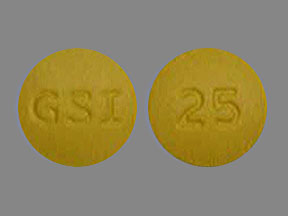Vemlidy Dosage
Generic name: TENOFOVIR ALAFENAMIDE FUMARATE 25mg
Dosage form: tablet
Drug class: Nucleoside reverse transcriptase inhibitors (NRTIs)
Medically reviewed by Drugs.com. Last updated on Apr 4, 2024.
Testing Prior to Initiation of VEMLIDY
Prior to initiation of VEMLIDY, patients should be tested for HIV-1 infection. VEMLIDY alone should not be used in patients with HIV-1 infection [see Warnings and Precautions (5.2)].
Prior to or when initiating VEMLIDY, and during treatment with VEMLIDY on a clinically appropriate schedule, assess serum creatinine, estimated creatinine clearance, urine glucose, and urine protein in all patients. In patients with chronic kidney disease, also assess serum phosphorus [see Warnings and Precautions (5.3)].
Recommended Dosage in Adults and Pediatric Patients 6 Years of Age and Older and Weighing at Least 25 kg
The recommended dosage of VEMLIDY in adults and pediatric patients 6 years of age and older and weighing at least 25 kg is one 25 mg tablet taken orally once daily with food [see Clinical Pharmacology (12.3)].
Dosage in Patients with Renal Impairment
No dosage adjustment of VEMLIDY is required in patients with estimated creatinine clearance greater than or equal to 15 mL per minute, or in patients with end stage renal disease (ESRD; estimated creatinine clearance below 15 mL per minute) who are receiving chronic hemodialysis. On days of hemodialysis, administer VEMLIDY after completion of hemodialysis treatment.
VEMLIDY is not recommended in patients with ESRD who are not receiving chronic hemodialysis [see Use in Specific Populations (8.6) and Clinical Pharmacology (12.3)].
No data are available to make dose recommendations in pediatric patients with renal impairment.
Dosage in Patients with Hepatic Impairment
No dosage adjustment of VEMLIDY is required in patients with mild hepatic impairment (Child-Pugh A). VEMLIDY is not recommended in patients with decompensated (Child-Pugh B or C) hepatic impairment [see Use in Specific Populations (8.7) and Clinical Pharmacology (12.3)].
Frequently asked questions
- What is the difference between Vemlidy and Viread?
- Does Biktarvy increase cholesterol?
- Truvada vs Descovy: How do they compare for HIV and PrEP?
- What is the difference between HIV treatments Odefsey and Complera?
- Genvoya vs Stribild for HIV - How do they compare?
- How much does HIV treatment Cimduo cost?
- What drugs are contained in the HIV treatment Symtuza?
More about Vemlidy (tenofovir alafenamide)
- Check interactions
- Compare alternatives
- Pricing & coupons
- Reviews (1)
- Drug images
- Side effects
- During pregnancy
- Generic availability
- FDA approval history
- Drug class: nucleoside reverse transcriptase inhibitors (NRTIs)
Patient resources
Professional resources
Related treatment guides
Further information
Always consult your healthcare provider to ensure the information displayed on this page applies to your personal circumstances.

